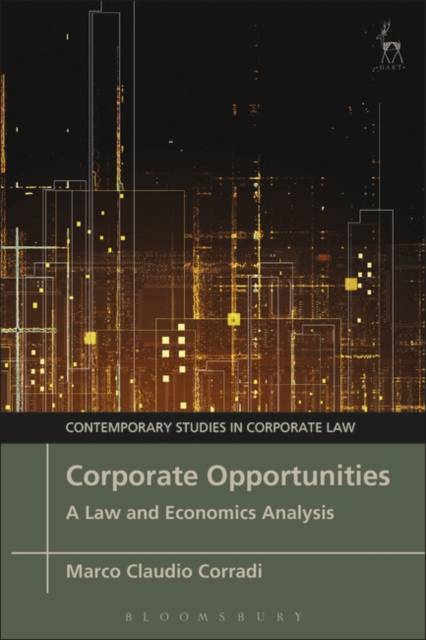
- Afhalen na 1 uur in een winkel met voorraad
- Gratis thuislevering in België vanaf € 30
- Ruim aanbod met 7 miljoen producten
- Afhalen na 1 uur in een winkel met voorraad
- Gratis thuislevering in België vanaf € 30
- Ruim aanbod met 7 miljoen producten
Zoeken
€ 101,95
+ 203 punten
Uitvoering
Omschrijving
This monograph provides a comprehensive analysis of corporate opportunities doctrines from a comparative perspective. It looks at both common law and civil law rules and relies to a large extent on a law and economics approach.
This book broadens the conventional view on corporate opportunities, a vital step in light of the adoption of corporate opportunities rules in civil law jurisdictions and in light of investors' ever-changing strategies. This approach considers institutional complementarities and especially industrial complementarities. The book thus explores several jurisdictions and their economic and industrial environments, whilst also assessing the impact of globalisation onto legal reform. Furthermore, it analyses the problems related to the application of corporate opportunities rules to cross-border venture capital. In normative terms, the book advances one main stance, articulated in three points: first, it proposes different sanctions for undisclosed and disclosed misappropriations, supporting the core idea that sanctions should be set against disclosure and not authorisation. Secondly, it advances the idea that sanctions against undisclosed misappropriations should be more severe than the ones presently applied. Thirdly, it considers the possibility of a more flexible treatment of disclosed misappropriations. This study is positioned at the intersection of several fields, providing a lens into a much broader range of dynamics that will be of interest to a varied international readership, and offering a window into the broader institutional dynamics at work in centres of innovation (eg Silicon Valley and industrial districts in other jurisdictions). It is rooted in law and economics, but the emphasis is placed on how corporate opportunities rules fit within a broader set of institutional dynamics that affect innovation, industrial efficiency, and economic competitiveness.Specificaties
Betrokkenen
- Auteur(s):
- Uitgeverij:
Inhoud
- Aantal bladzijden:
- 384
- Taal:
- Engels
- Reeks:
Eigenschappen
- Productcode (EAN):
- 9781509953226
- Verschijningsdatum:
- 23/03/2023
- Uitvoering:
- Paperback
- Formaat:
- Trade paperback (VS)
- Afmetingen:
- 156 mm x 234 mm
- Gewicht:
- 453 g

Alleen bij Standaard Boekhandel
+ 203 punten op je klantenkaart van Standaard Boekhandel
Beoordelingen
We publiceren alleen reviews die voldoen aan de voorwaarden voor reviews. Bekijk onze voorwaarden voor reviews.








